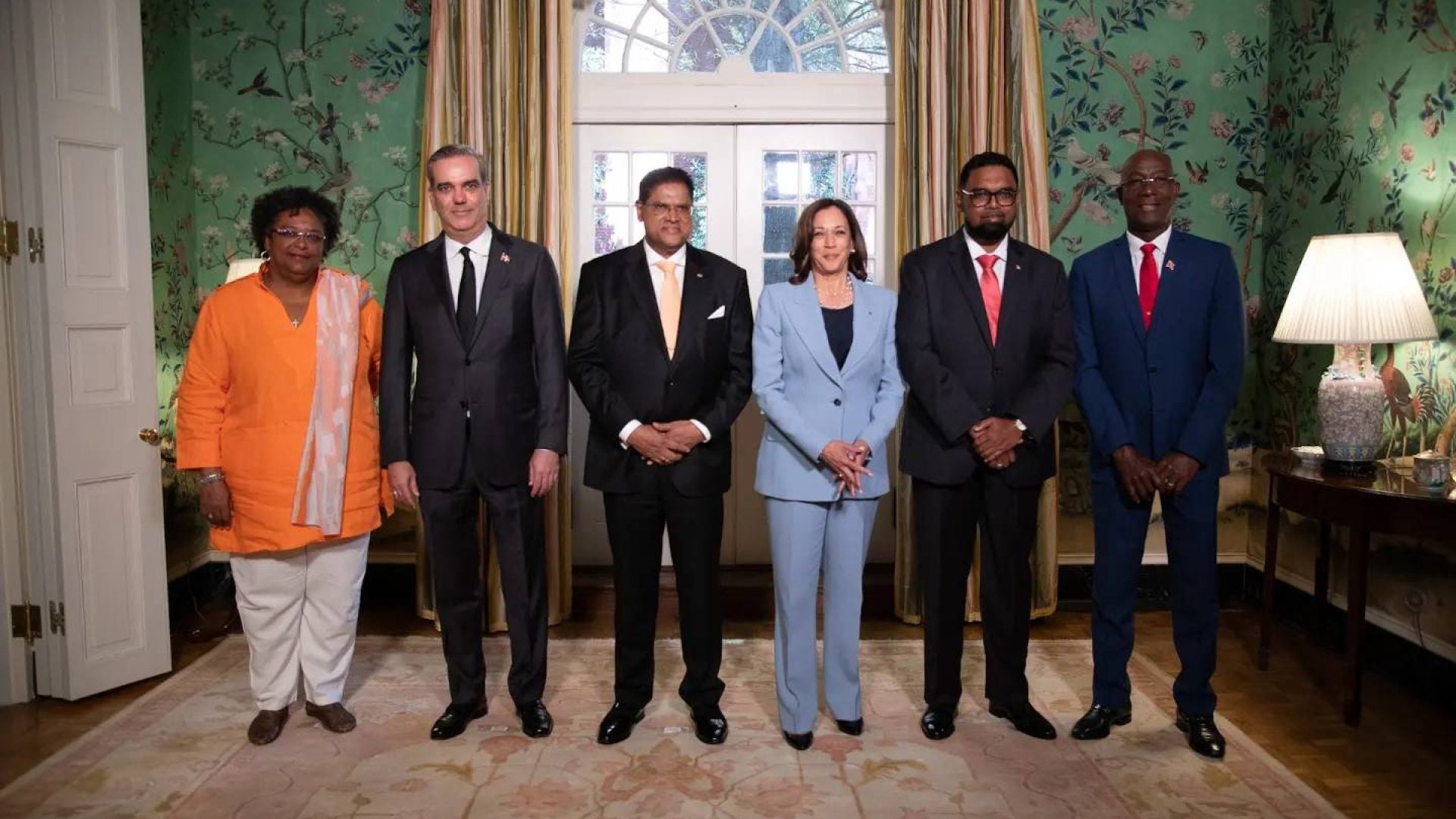
Vice President Kamala Harris met with Caribbean leaders in Washington, D.C., to discuss details of a new partnership meant to address some of the region’s most pressing needs, including access to finance, food production, energy security and climate change.
The September 15 meeting at Blair House included the leaders of five Caribbean countries: Prime Minister Mia Mottley of Barbados, Prime Minister Dr. Keith Rowley of Trinidad and Tobago, President Irfaan Ali of Guyana, President Luis Abinader of the Dominican Republic and President Chan Santokhi of Suriname.
This meeting is an important follow-up to the partnership commitments made by the Biden-Harris administration to the Caribbean at the Summit of the Americas in Los Angeles in June.
The push to explore ways to improve cooperation between the United States and the Caribbean region is a welcome change from U.S. policy toward the region, which has generally lacked consistency. And, often fluctuated based on crises rather than the creation of sustainable strategies for collaboration due to shared interests and priorities.
The Biden administration will partner with the region to address energy security, access to finance and food security in the Caribbean—three areas identified as top priorities by Caribbean leaders.
“The relationship between the United States and the Caribbean is based on common bonds and interests,” said VP Harris in remarks ahead of the discussion. “As neighbors in the Western Hemisphere, we believe it is critical that we have a relationship that is based on close cooperation, knowing that the result of that will be our shared prosperity and security, which is why we, the United States, have pledged to increase our commitment and engagement with our Caribbean partners,” she added.
The Biden administration created three high-level action committees to “develop concrete, near-term solutions to the pressing challenges in the region” during the June summit in Los Angeles. Co-chaired by the United States, some leaders of the 15-member Caribbean Community regional bloc known as CARICOM and the Dominican Republic, the committees have held nearly a dozen technical and high-level meetings since June to create action plans, according to the White House.
The mid-September meeting in the nation’s capital was convened to review the progress made so far on integrated efforts to strengthen energy security, improve access to finance and enhance food security in the Caribbean through initiatives like training programs, regional conferences and public-private partnerships.
“I stand in my belief that it is critical we make the right decisions today, for the sake of the world tomorrow,” said Mottley in a statement following the meeting.
Many of these actions are meant to build on and move the implementation of the U.S.-Partnership to Address the Climate Crisis, or PACC 2030, forward. Among the initiatives, the U.S. has committed to supporting energy infrastructure and climate resilience projects, as well as assisting Caribbean countries in accessing financing for climate initiatives and identifying and launching clean energy and climate projects.
The United States will also provide technical assistance to Caribbean nations, bring investors to the region, and improve access to development financing. In addition, the Biden-Harris administration says addressing food security in the Caribbean and around the world is a priority, with VP Harris noting that “the work has already begun.”
The U.S. has committed $28 million to provide food security assistance to the Caribbean. It will remove non-tariff barriers to facilitate the movement of food to the region as a part of the plan.